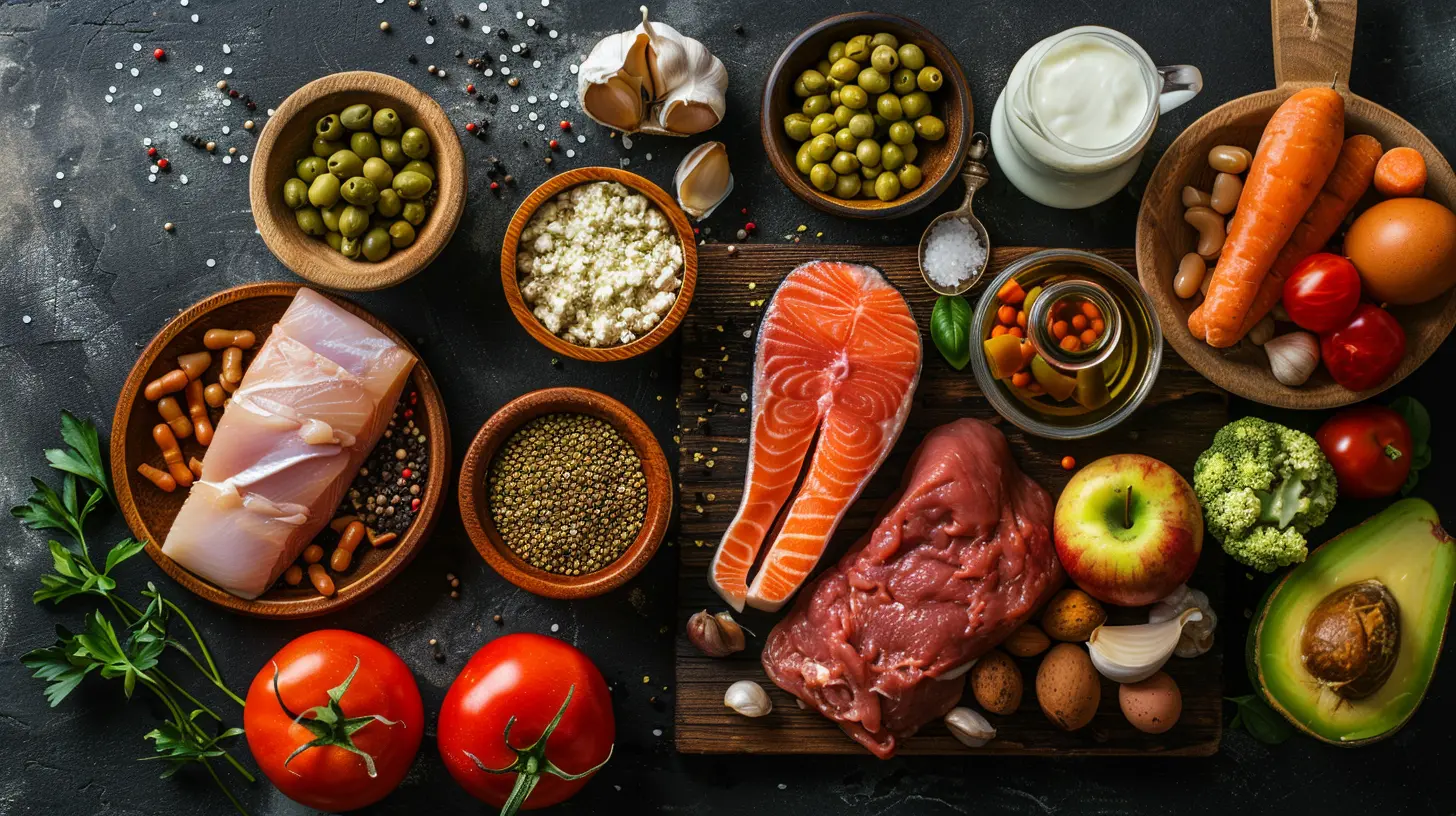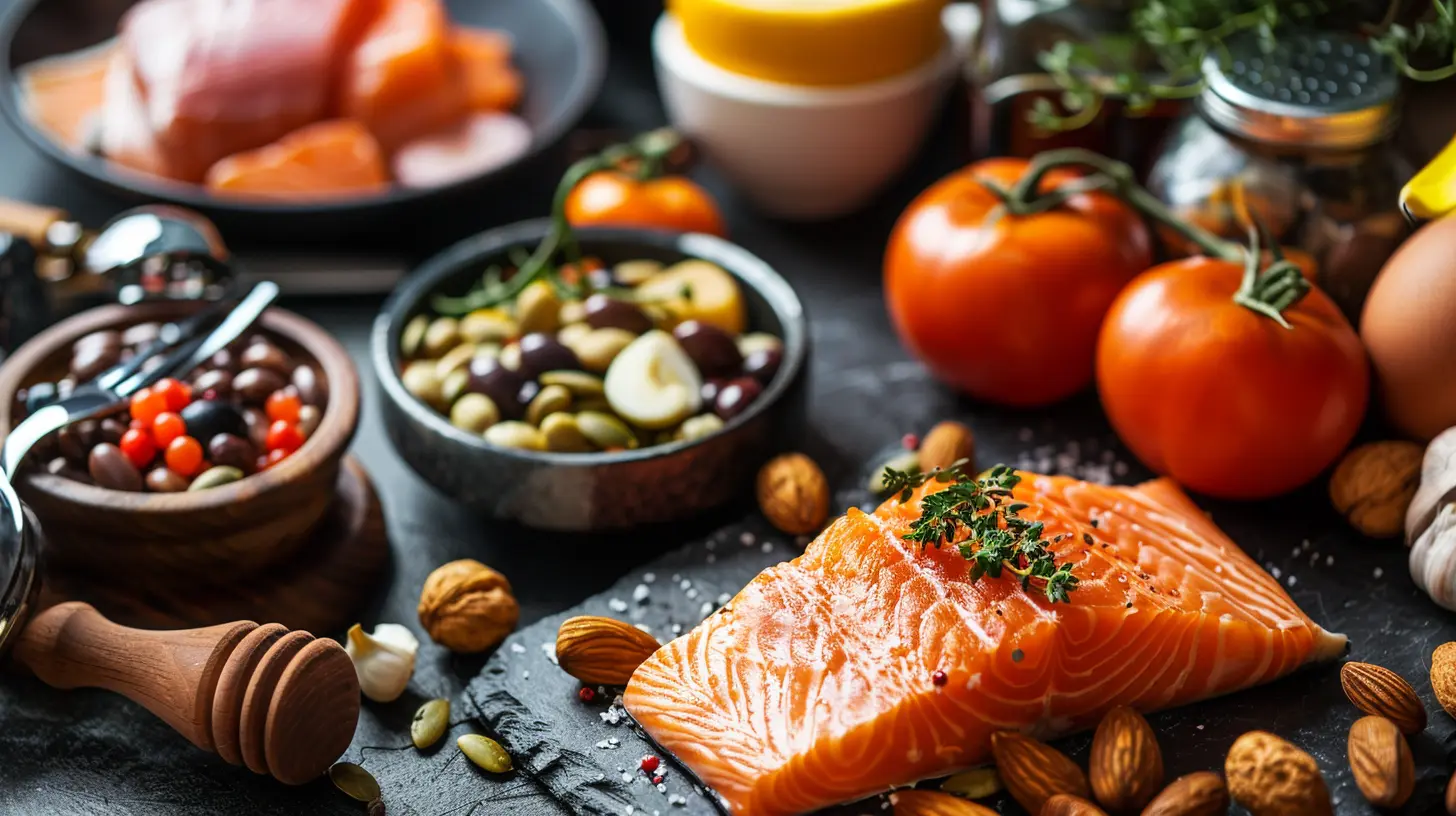Low Carb Diets and Intermittent Fasting: A Powerful Combo
20 July 2025
Losing weight feels like juggling flaming bowling pins while riding a unicycle—complicated and risky. But what if I told you that combining a low-carb diet with intermittent fasting (IF) could make this circus act a whole lot easier? Yep, this combo is like Batman and Robin for your metabolism.
Let’s break it down in a way that won’t bore you to tears. 
What’s the Deal with Low-Carb Diets?
A low-carb diet is exactly what it sounds like—you cut down on carbs (bread, pasta, sugar) and focus on protein, healthy fats, and non-starchy veggies. Think of it as telling your body, “Hey, let’s burn fat instead of depending on sugar.”Why Go Low-Carb?
- Fat loss on autopilot: When your insulin levels drop, your body taps into fat stores for energy.- No more energy crashes: Say goodbye to that 3 PM slump when carbs betray you.
- Reduced cravings: Sugar withdrawal is real, but once you're past it, you won’t even miss those donuts. (Okay, maybe just a little.)
Popular low-carb diets include Keto, Atkins, and Paleo. Each has its own twist, but they all agree on one thing—carbs are not your best friend. 
Intermittent Fasting: The Missing Puzzle Piece
Intermittent fasting (IF) isn’t really a diet—it’s an eating schedule. You cycle between eating and fasting periods, letting your body do what it was designed to do: burn stored fat when there’s no food coming in.Common IF Methods
- 16/8 Method: Fast for 16 hours, eat within an 8-hour window. (Most popular!)- 5:2 Diet: Eat normally for 5 days, eat like a bird (500–600 calories) for 2 non-consecutive days.
- OMAD (One Meal a Day): Not for the faint-hearted, but great for hardcore fasters.
Why Do People Swear by IF?
- Helps burn fat without muscle loss: Your body becomes a fat-burning furnace.- Gives digestion a break: No more constant snacking means your gut can relax.
- Improves insulin sensitivity: Your body processes sugar better, reducing diabetes risk.
Basically, IF is like a personal trainer for your metabolism—keeping it efficient and disciplined. 
The Dynamic Duo: Low-Carb + Intermittent Fasting
Now, here’s where the magic happens. Combining low-carb eating with intermittent fasting turns you into a fat-burning machine. Here’s why this combo works like a charm:1. Faster Fat Adaptation
Your body usually runs on carbs. But when you go low-carb, it switches to fat-burning mode (a.k.a. ketosis). Add fasting to the mix? That switch happens even faster.It's like teaching your body to ride a bike with training wheels (low-carb), then taking the wheels off (IF) and letting it go full speed ahead.
2. Insulin Levels Stay Low
Both low-carb diets and fasting lower insulin levels, which means:- Less fat storage
- More fat burning
- Reduced risk of insulin resistance and type 2 diabetes
3. Crushing Hunger Like a Pro
Ever notice how eating carbs makes you hungrier? That’s because they mess with your blood sugar levels. A low-carb diet stabilizes them, and IF helps cut cravings. Goodbye, hangry mood swings!4. Huge Metabolism Boost
Contrary to popular belief, fasting does NOT slow down your metabolism—it actually gives it a boost! Pair that with low-carb eating, and your body becomes a fat-burning, energy-efficient powerhouse.5. Simplifies Eating
No need to count calories constantly. You eat when you’re supposed to, and your body does the rest. It’s like autopilot for weight loss!
How to Get Started Without Wanting to Die
Let’s be real, going low-carb AND fasting at the same time can feel like going into battle unarmed. Here’s how to ease into it:Step 1: Start with Low-Carb First
Cut down on carbs gradually. Swap bread for extra veggies, skip the sugar in your coffee, and say goodbye to soda. Give your body time to adjust.Step 2: Try a 12-Hour Fast
Start small. Finish dinner by 7 PM and don’t eat again until 7 AM. Boom! You just fasted. Slowly increase your fasting window as you get comfortable.Step 3: Combine the Two
Once your body has adjusted to low-carb living, transition into 16/8 IF. It’ll feel natural because your hunger levels will already be lower.Step 4: Listen to Your Body
Feeling exhausted? Lightheaded? Maybe you need more electrolytes or healthy fats. Don’t ignore your body’s signals.What Can You Eat?
Alright, so what’s on the menu?Low-Carb, IF-Friendly Foods
- Protein: Eggs, chicken, beef, fish- Healthy Fats: Avocados, olive oil, nuts, butter
- Non-Starchy Veggies: Broccoli, spinach, cauliflower, zucchini
- Dairy (if tolerated): Cheese, Greek yogurt, heavy cream
Foods to Avoid Like the Plague
- Sugar (bye-bye, soda)- Bread, pasta, rice
- Processed junk
- Seed oils (vegetable oil, soybean oil)
Common Mistakes (And How to Avoid Them)
1. Going Too Hard, Too Fast
Some people jump straight into hardcore keto and 20-hour fasts on day one. That’s a recipe for disaster. Take it slow.2. Not Drinking Enough Water
Low-carb diets flush out water, so hydrate! Add a pinch of salt to your water to replenish electrolytes.3. Overeating During Your Eating Window
Just because you’re fasting doesn’t mean you can devour an entire pizza in one sitting.4. Skipping Sleep
Good sleep is essential for weight loss. Don’t sabotage your progress by binge-watching Netflix all night.The Results? A Healthier, Leaner YOU
When you combine low-carb eating with intermittent fasting, you’re basically hacking your metabolism. You’ll burn fat, feel more energized, and finally escape the blood sugar roller coaster.Will it be tough at first? Probably. But stick with it, and soon you’ll wonder why you didn’t start sooner.
Now, go forth and conquer that fat!
all images in this post were generated using AI tools
Category:
Low Carb DietAuthor:

Holly Ellison
Discussion
rate this article
1 comments
Octavia Clarke
Great article! The combination of low carb diets and intermittent fasting offers an exciting approach to better health and wellness.
August 6, 2025 at 3:36 AM

Holly Ellison
Thank you! I'm glad you found the article insightful. The combination truly can be a game-changer for many!


